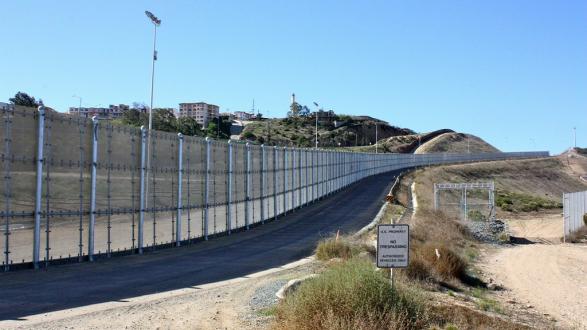In:
Global Beat is your weekly stop for news from around the world. Join us every Friday morning for important stories you should know about.
This week, President Trump’s executive orders on immigration and a promised U.S.-Mexico border wall increase tensions between the two governments; the UK’s Supreme Court rules parliament must vote to approve a Brexit; Israel announces more settlement homes in the West Bank; and more.
____________________
Americas
U.S. President Donald Trump has signed a number of executive orders impacting U.S. foreign policy in the first days of his presidency. He formally withdrew the United States from the Trans-Pacific Partnership (TPP) trade deal; reinstated the "Mexico City Policy," which prohibits the United States from funding international groups that either perform or provide information on abortions; and ordered the use of government funds to build a wall on the U.S.-Mexico border, leading Mexican President Enrique Peña Nieto to cancel his meeting with President Trump in Washington next week. More executive actions are expected.
Also check out:
- Venezuela’s economic woes will deepen, IMF predicts – Alvaro Algarra, Voice of America
Central & South Asia
On Tuesday, the Pakistani military carried out its first successful launch of a new medium-range ballistic missile (MRBM) equipped with "multiple independently targeted reentry vehicles," according to a statement from the Pakistani military’s media wing, Inter-Services Public Relations. The statement asserts the MRBM, known as Ababeel, is capable of carrying multiple nuclear warheads and engaging with numerous targets with high precision. This was Pakistan’s third missile test this month, leading to further concerns that India and Pakistan are in a full-blown arms race.
Also check out:
- India, United Arab Emirates condemn use of religion to justify state-sponsored terrorism – Indrani Bagchi, The Times of India
China & East Asia
Hong Kong has agreed to return nine armored troop carriers that were seized from Singapore in November as they were returning from training exercises in Taiwan. Hong Kong’s commissioner of Customs and Excise, Roy Tang, said the infantry carriers were suspected to have breached Hong Kong law and that a criminal prosecution is still possible. Meanwhile, Singapore’s Defense Ministry has asserted that the vehicles were simply being used in routine overseas training. Hong Kong has continued to deny the suggestion that Beijing, often unhappy with Singapore’s longstanding tradition of holding military training in Taiwan, orchestrated the seizure and is involved with the ongoing investigation.
Also check out:
Europe & Russia
Britain’s Supreme Court ruled in an 8-3 decision on Tuesday that a vote must be held in parliament prior to triggering Article 50 of the Lisbon Treaty. This creates a complication for Prime Minister Theresa May, who wanted to start the process of exiting the EU by the end of March. The court determined that the Scottish Parliament and the assemblies of Wales and Northern Ireland do not have a vote on the matter, intensifying talks about a second Scottish referendum. A bill is expected to be presented in parliament in the coming days.
Also check out:
- Russia angered as Britain’s navy keeps eye on "ship of shame" – Laura Smith-Spark and Brad Lendon, CNN
Middle East & North Africa
Israel has announced it will build 2,500 settlement homes in the occupied Palestinian territories in the West Bank. It will be one of the largest in years and is in opposition to a United Nations Security Council resolution passed in December, which called for a halt on any new Israeli settlements in the occupied territories. The Israeli government viewed the United States’ abstention from the vote under the Obama adminisration as a "failure to protect Israel against this gang-up at the UN." The move comes just days after the Trump administration proposed moving the U.S. embassy from Tel Aviv to Jerusalem.
Also check out:
- Iran, Russia, and Turkey agree to enforce Syria cease-fire, but don’t explain how – Anne Barnard and Hwaida Saad, The New York Times
Southeast Asia & Oceania
Following the withdrawal of the United States from TPP, Indonesia, Southeast Asia’s biggest economy, is reconsidering its decision to join the agreement. Instead, Indonesia is interested in creating bilateral trade deals with the United States, the EU, and Australia, while still monitoring progress of TPP. Meanwhile, Australia is hoping to push ahead with the trade deal without the United States. Australian Trade Minister Steven Ciobo said the country has been in talks with Mexico, Japan, New Zealand, Singapore, Malaysia, Chile, and Peru in attempts to save the deal without U.S. participation.
Also check out:
Sub-Saharan Africa
A new report from the Washington-based watchdog group Enough Project says South Sudan’s military is engaged in “systemic corruption that has plundered the country’s resources and fueled conflict in the East African nation.” A civil war has raged in the world’s youngest nation since 2013. In the Corruption Perceptions Index 2016 released by Transparency International this week, South Sudan ranks as the second most corrupt country in the world, after Somalia and before North Korea.
Also check out:
- Tanzania to receive $305 million World Bank loan for Dar es Salaam port expansion – Fumbuka Ng’wanakilala, Reuters




